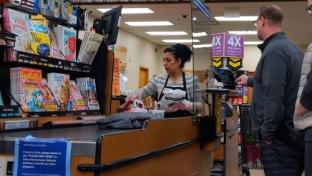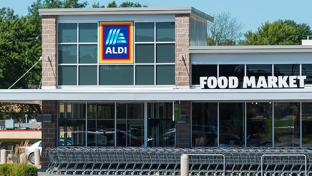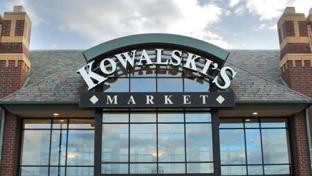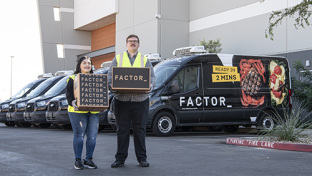Opinion: Kroger-Albertsons Proposed Mega-Merger Is a Threat to Workers and Shoppers Alike
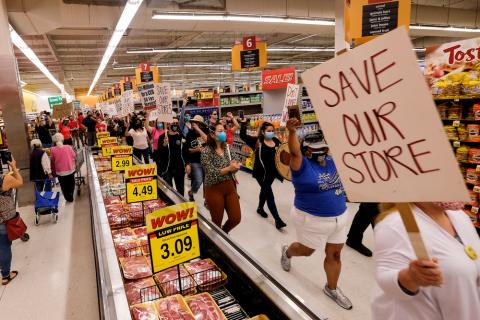
The harm that would result from the proposed mega-merger of Kroger and Albertsons is hard to overstate. It would threaten the ability of hundreds of thousands of union grocery store workers to negotiate stronger contracts with improved wages and benefits. More than 100,000 of these essential grocery store workers are members of United Food & Commercial Workers (UFCW) locals that are part of a coalition, along with hundreds of other organizations across the nation, that oppose this proposed mega-merger. Indeed, our local unions have been a leader against these two corporations’ proposed merger since it was first announced more than a year ago.
Here is why the merger is a bad idea. It’s a bad idea for tens of thousands of workers who deserve a fair wage and a safe workplace. It’s a bad idea for the millions of shoppers we all serve every day who would see reduced competition, higher prices and less consumer choice. It’s a bad idea for suppliers already squeezed by consolidations that have taken place in their markets.
[Read more: "Opinion: Why the Kroger-Albertsons Merger Is Good for Union Workers"]
Thankfully, we’re far from alone in our opposition. We’re proud to stand with a large and diverse group of partners opposing this boondoggle of a proposed mega-merger. The opponents range from farmers to small businesses, from many unions to consumers, from states attorneys general to members of the U.S. Senate, both Republicans and Democrats. Go to NoGroceryMerger.com to find out more.
Background of a Proposed Merger
It was just over a year ago that Kroger (the largest traditional grocery store chain in America) revealed its proposed merger with Albertsons (the nation’s second-largest traditional grocery store chain). Most observers see this for what it is – a bad idea concocted behind closed doors by wealthy executives who would become even more wealthy if such a scheme were ever approved. This debacle-in-the-making is similar in many ways to the bankruptcy-inducing merger between Safeway and Albertsons back in 2015, only much worse. One case in point is the recently announced divestiture plan of more than 400 stores to a retail grocery weakling, C&S Wholesale Grocers, that only raises more alarm bells the more one looks through the smoke and mirrors of that side deal.
The drive to increase profits at the expense of workers and consumers is a matter of record. A few years ago, as the COVID pandemic was just beginning, many businesses and workplaces across America were shuttered. The economy was in a tailspin. Restaurant, hospitality and travel industries were on the brink. But investors in one sector in particular ended up making unprecedented profits – big national grocery chains. Without explanation, Kroger and Albertsons eliminated hazard pay for employees who were overworked and understaffed and getting sick. The same companies raised the prices for food far above the rate of inflation and drove profits even higher.
'Irrevocable Harm'
Let’s be as clear as possible. For the hundreds of thousands of workers at the combined nearly 5,000 stores run by these two companies, this proposed merger is a threat to our jobs, our income, our pensions and our health care. And our communities would be threatened with shuttered storefronts, higher prices and less choice for shoppers. Kroger has promised not to close stores or lay off workers, but why should we believe it?
To paraphrase one Republican senator questioning the Kroger CEO at last November’s antitrust hearing, if you raised prices on customers during the pandemic, when you were making record profits and were competing against Albertsons, why would we believe that you wouldn’t raise prices and reduce choices if you were successful in eliminating Albertsons as your biggest competitor by taking it over through this merger? The seemingly baffled CEO appeared to respond with almost a smirk and a “just trust me” shrug of the shoulders.
Clearly, in most policy discussions, reasonable people have differing points of view. But this proposed mega-merger is hardly such a case. You can’t take the top two companies in an industry and allow them to merge and think the result would be anything less than a monopoly. Furthermore, unionized workers would no longer be able to negotiate with these two employers, and instead would be stuck bargaining with just one who’d become disproportionately more leveraged while at the same time reducing workers’ leverage in the labor market.
How could anyone propose that this monopoly merger is good for workers and unions and consumers? How could anyone claim that the proposed divestiture plan with C&S is anything but wishful thinking? In the end, there really are no good arguments for allowing the largest and second-largest traditional grocery store chains to combine. If it were to happen, it would cause irrevocable harm to America’s workers and shoppers, as well as to producers and others up and down the supply chain. We are hopeful that the FTC will do the right thing and reject this proposed merger.


